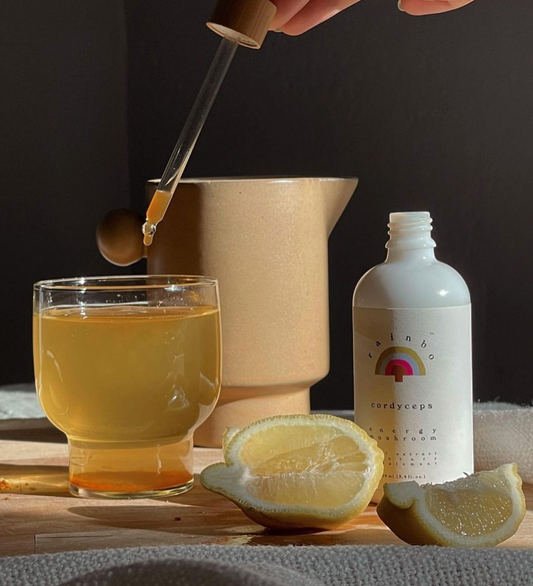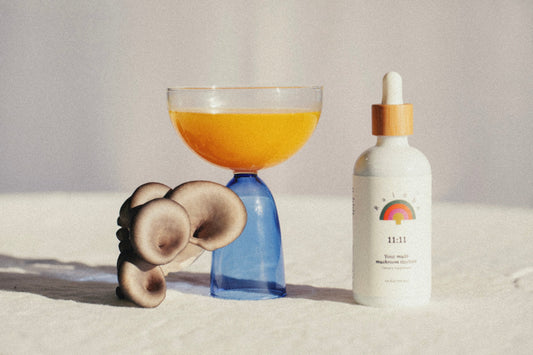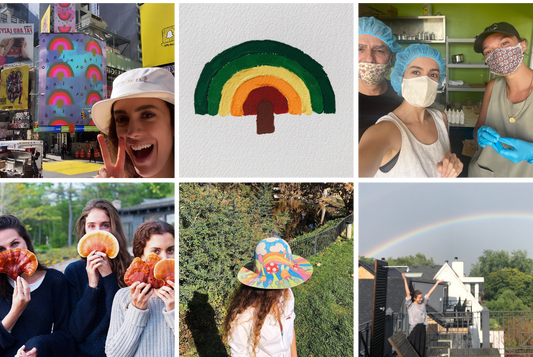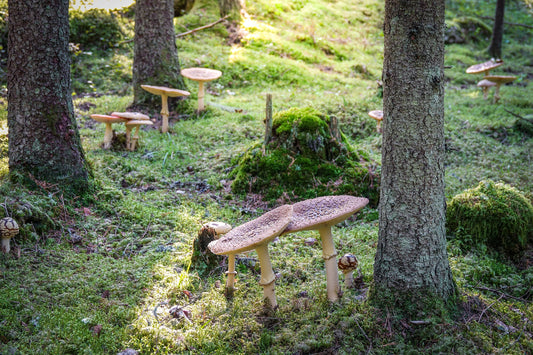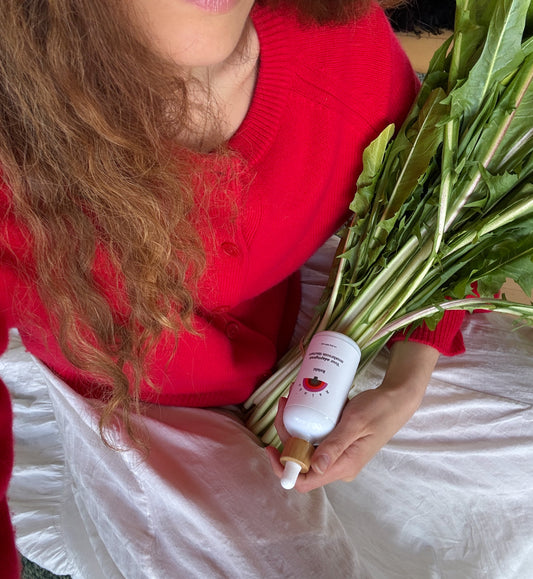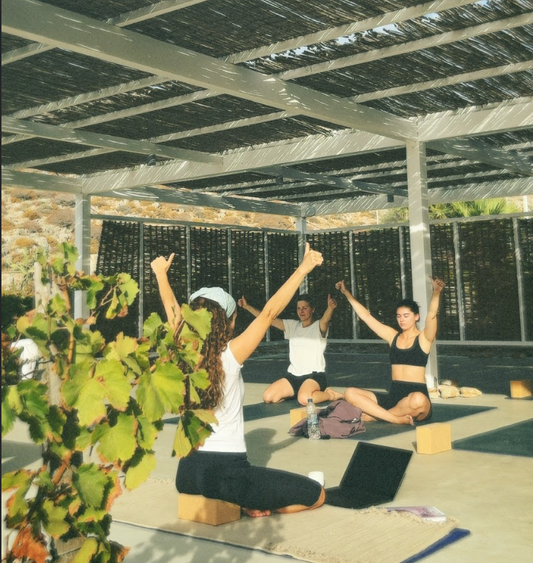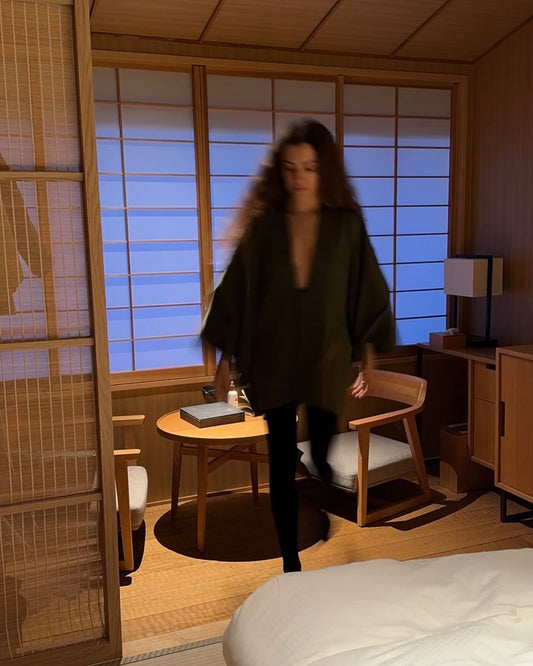What is a Tincture?
What is a medicinal mushroom tincture?
A mushroom tincture is simply an extract of mushrooms dissolved in alcohol.
An “extract” may be found in liquid or powder form and is typically made by soaking plant or fungal raw material in a solvent such as alcohol or water in order to extract parts from the starting material.
Therefore a tincture is simply a concentrated liquid extract that uses alcohol specifically as one of the solvents to dissolve the desired components found in the raw material.
All tinctures are extracts, however all extracts are not tinctures!
** A solvent is the liquid that is capable of dissolving other substances.
How are tinctures made?
Tinctures use alcohol because it is an excellent solvent for extracting both acidic and basic compounds from the mushroom that dissolve poorly in water alone. A food grade ethanol is typically used, as it’s safe for consumption.
Tinctures can be made from a single mushroom or a combination of mushrooms. The starting material (raw or dried mushrooms) is chopped or ground and left to soak in alcohol for weeks. After a period of time, the solids are strained and removed, leaving behind a concentrated liquid.
Often when looking at tinctures or extracts, a ratio will be stated to indicate the concentration of the liquid. The ratio is simply the amount of starting material:liquid solvent that is used. For example, at Rainbo we use a ratio of 1:5, meaning there is an equivalent of 1g of dried mushrooms for every 5 ml of liquid.
Rainbo tinctures
At Rainbo our tinctures are made by using both hot water and alcohol in what’s called a dual-extraction process.
Water-soluble compounds such as the beta-glucans are found in the cell walls of fungi, but they are typically unavailable for absorption in the body because they are locked behind an indigestible fibre "wall" called chitin. A hot water extraction is used to “melt” the chitin, and release these therapeutic compounds. This is the same idea behind brewing teas to release and concentrate the medicinal compounds found in different herbs! The liquid is collected and concentrated, and the mushroom material is saved and used in a secondary extraction process using alcohol.
An alcohol extraction is used to release the rest of the non-water soluble compounds, such as triterpenes, from the mushrooms. The two final concentrated liquids are combined together to form a tincture that contains the full complement of active ingredients. At Rainbo we use 30% organic GMO-free ethanol and 70% spring water for the double extraction of each mushroom.
Why use tinctures?
Pros:
- Bioavailability: Unless subjected to an extraction method, the majority of the medicinal compounds locked up in mushrooms will not be bioavailable for absorption in the body. A dual-extraction is the best method to access the most complete range of compounds from the mushroom.
- Absorption: Herbalists state that alcohol increases the absorption of an herb by approximately 30 per cent, so the doses can be much smaller.
- Faster absorption rate: An extract in liquid form is absorbed faster by the body than a powder extract, with absorption starting in the mucous membranes of the mouth.
- Stable quality: The alcohol in a tincture gives it a long shelf life and maintains its potency over time.
- Easy to mix: As a liquid, tinctures are easy to add to other liquids and mix into food dishes without the clumping of powders.
- Time: Tinctures are the quickest way to reap the benefits at full bioavailability. You can put the tincture right into the mouth or in a water bottle with no need to shake or mix in as you would a powder.
Cons:
- Taste: Because of the high alcohol content, the taste of putting a tincture directly into your mouth can be undesirable for some people. We recommend mixing Rainbo tinctures in with other beverages to soften the flavour if it's unpleasant to you. Personally, we love the jolt of energy we get from putting the tincture directly under the tongue!
- Alcohol: This can be a big limitation for alcohol-based tinctures as they are not suitable for people with alcohol-abuse issues or serious liver disease. As well, pregnant women should avoid using them and some religions also prohibit the use of alcohol. (Ps. we've heard your requests on this and are working on some Glycerine alcohol-free alternatives for you).
Find out which tincture is best for you
Did you know...
Humans have been using tinctures since 1000 A.D. when alcohol was first distilled by the ancient Egyptians and used to extract the powerful chemical properties of herbs and mushrooms alike.
Herbal Medicine
We were first introduced to taking and making tinctures through studies and an internship in herbal medicine.
Herbal medicine is any system of medicine that relies on herbs or other plant/fungi-based materials as the source of remedies.
Every culture throughout the world--until very recently--used healing plants as the basis for their medicine. The World Health Organization reports that approximately 75 per cent of the world's population depends on botanical medicines for its basic health care needs. Approximately five hundred species of plants are listed as official drugs in China!

